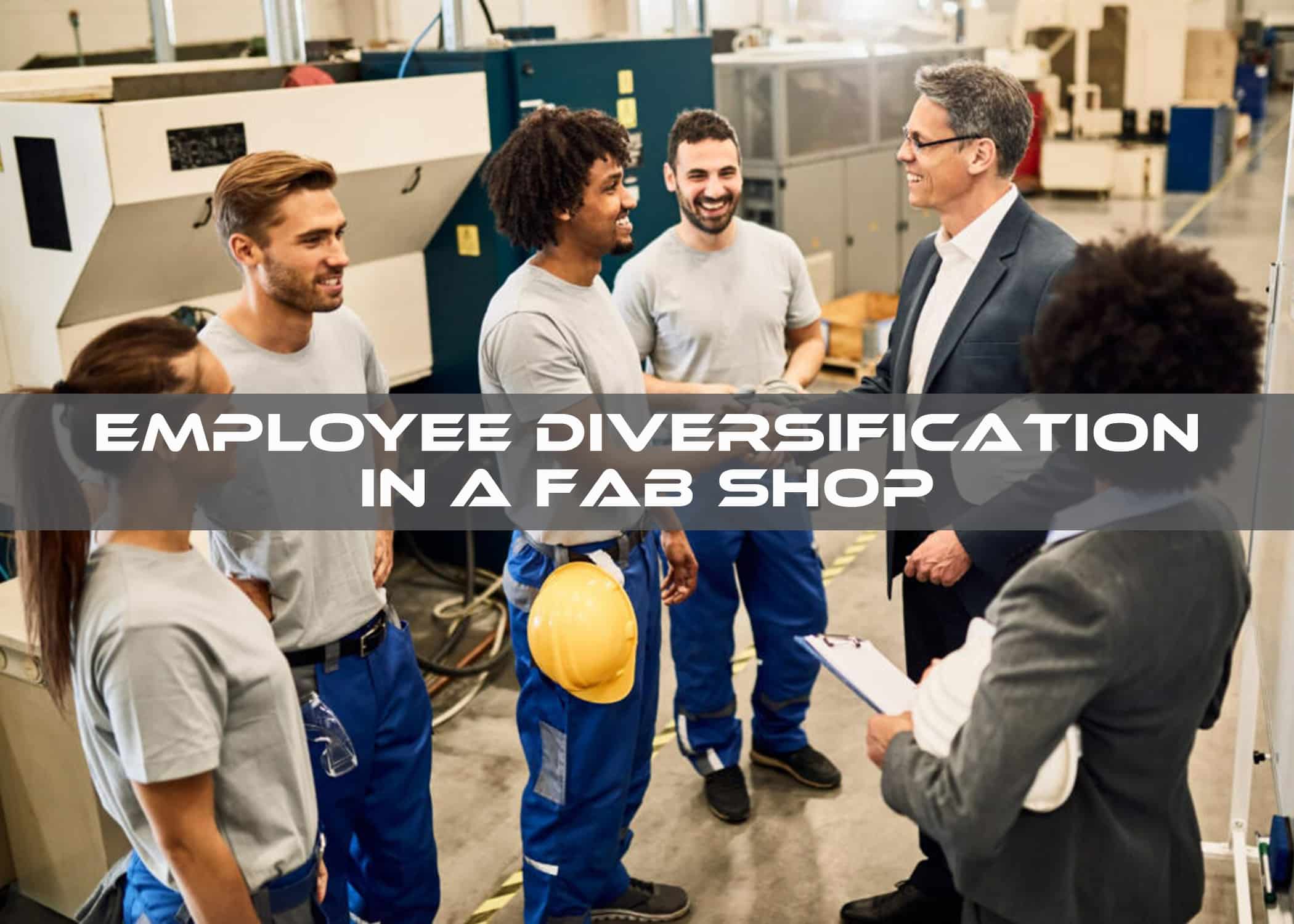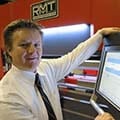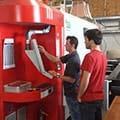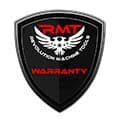A Lesson in Understanding
“What you need,” Marcel said, “is to hang around people who look different than yourself.”
“Well, I hang around you,” Bill replied with a smile. Marcel didn’t smile back.
This was the second time in less than a year that Bill had sought out Marcel with concerns of diversification over a fellow employee. The first time was after a new fabricator had started and casually mentioned that he was taking a trip in a few weeks with his boyfriend. Bill had sat down across from Marcel in the breakroom and vented his concerns about the new guy’s “lifestyle.”
“Well, it really doesn’t affect you,” Marcel had replied. “Live and let live, you know?”
“I guess,” Bill had said, “but I just don’t want to have to deal with a lot of ‘woke’ garbage here in the shop.”
Marcel, a large Black man, had straightened up in his seat, leaned towards Bill, and asked, “What exactly do you mean?”
When Bill had started to stammer out an explanation, Marcel cut him off, and proceeded to explain that the term “woke” had originated in the African American community to refer to being aware of racial inequality and discrimination. “Sure, other groups have adopted it, and now it has a whole bunch of political stuff associated with it but be careful how you use it—the original idea of seeing other people as fellow human beings with the same rights as yourself is still true.”
They had a good long talk that day and Bill agreed that he would work on being less judgmental of others, especially those he had to work with. He and Marcel had gone from being coworkers to friends that day, with their families getting together for barbecues and other activities.
Today Bill was once again expressing concerns about a fellow staff member to Marcel. He had gone to the new assistant shop manager’s office with a question, but before he knocked, he glanced through a crack in the mostly closed door and saw something that had shocked him. “Med is a Muslim!” Bill told Marcel when he sat down with him in the breakroom today.
“I know,” Marcel replied. That was when he told Bill he should hang around people who looked different than himself.
“It doesn’t matter to me what he looks like,” Bill said, mostly truthfully. “It’s what he believes that matters.”
“Didn’t we already have this discussion?” Marcel responded. “What you think is right in a situation and what others think is right will almost always be two different things. It doesn’t matter whether it’s politics, religion, sexual-orientation, or anything else—people will believe differently than you, and you need to be able to allow them their freedom to do that. Even if it makes you extremely uncomfortable, if it isn’t directly hurting you, you need to let it be.” Then he added, “And maybe try a little to understand why they think the way they do.”
Bill nodded, but then went on to tell Marcel what he had seen that day that had upset him. “You know that blanket that Med hangs over the back of his chair? Well, I saw Med kneeling on it on the floor of his office and he was touching his head to the floor.”
“Yeah, it’s a prayer rug, and Muslims use them when they hold their daily prayers,” Marcel said. “So?”
“Well… I don’t know,” Bill said. “It just seems wrong, somehow. I mean, to have that thing in there and to do that.”
“You wouldn’t want him complaining about how you pray, would you?” Marcel asked. “Like I said, try to understand the ‘why’ that’s behind the ‘what.’ Maybe go home and read up on how they pray in Islam, and then ask Med about it directly. That’s a lot better than just worrying and gossiping.”
Bill took Marcel’s advice and after doing some study on the Internet that night, he went to Med’s office the next day and approached him about it, apologizing for having nearly walked in on him the day before. They had a friendly discussion, with Bill sharing what he had learned about how the prayer mat created a clean, sacred space in which a Muslim could pray. Bill then compared that to how he and his family wore their “Sunday best” when they went to church and how they held their worship service in the central room of the building called the sanctuary, a special place reserved for that purpose. They parted with a promise to each learn more about what the other believed.
“I’m proud of you,” Marcel said when they met later that day in the breakroom and Bill reported his progress. “That shows some real growth on your part.”
After sitting quietly for a moment, Bill asked, “Did you know that Med’s full name is Ahmed?”
“Yes,” Marcel replied. “What did you think it was?”
“I just thought it was a nickname,” Bill responded. “I figured maybe he really liked vacationing in the Mediterranean or something.”
They both had a good laugh over that.
Advantages of Workplace Diversity
It’s a simple fact that since America is a diverse country that most workforces will likewise be diverse. It’s also a fact that it’s illegal for an employer in the U.S. to discriminate against employees because of factors like race, national origin, gender issues, religion, or age, so a company can’t really attempt to be less diverse in its employee makeup.
Fostering diversity among the employees of a metal fabrication shop brings a wider variety of knowledge, skillsets, and viewpoints into a company. Every employee has something in their background that can benefit an employer in a unique way, if the time is taken to discover what it is. For example, some shops tend to discriminate based on age, discounting older workers who may no longer possess as much stamina, and/or younger workers who may lack the proficiency and work ethic of their elders. Yet older metalworkers have experience and knowledge of time-tested techniques that they can impart to the rising generation, while younger employees may know how to leverage social media platforms to open new marketing channels and reach a much wider customer base for the shop.
Having a more diverse workplace is simply better for business, as the following general statistics about companies demonstrate:
- 12% harder work is performed in diverse teams.
- 17% better performance was found in teams with inclusive leadership.
- 19% greater likelihood of retaining employees existed within a diverse company.
- 20% better decision making was found in companies with inclusive leadership.
- 33% more likely to be profitable with a diverse workforce.
- 57% more effective collaboration in diverse teams.
- 66% of job hunters take a company’s diversity into account when looking.
- 70% more likely to capture new markets with diverse leadership.
Striving for a More Diverse Fabrication Shop
For old metalworkers set in their ways, bringing more diversity into the shop and office can entail a bit of a learning curve, but it doesn’t have to be a big shock to the system. Some basic steps that can be taken to make a fabrication business more inclusive include:
- Don’t discriminate when hiring, promoting, or considering salary.
- Implement a training program to educate all employees in cultural diversity.
- Acknowledge all holidays observed by members of the staff.
- Make sure that in planning meetings and other staff functions that all voices are being heard and all opinions are given equal time.
- Evaluate company policies to make sure they meet both legal requirements and ethical considerations for diversity.
Modern metal fab shops simply can’t afford to be behind their competitors in diversity, inclusion, and equity if they want to appeal both to better clients and the best employees. It may be difficult for a shop owner or manager to undo long-nurtured attitudes or prejudices, but with a company’s profitability at stake, it’s essential to make the effort.
